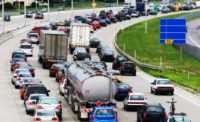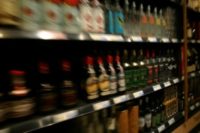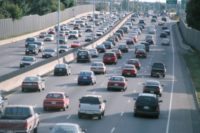"Drinksgiving" celebrations lead to impaired driving

Whether you call it “Drinksgiving” or “Blackout Wednesday,” the meaning is the same. Those terms refer to the night before Thanksgiving, which has become the biggest bar night of the year in the U.S., surpassing even New Year’s Eve. (“Danksgiving” also occurs during the Thanksgiving weekend but is related to marijuana use.)
With that distinction comes lots of drinking – including binge drinking – and, unfortunately, a high rate of drunk driving. And it isn’t limited to one night.
According to the National Highway Transportation Safety Administration (NHTSA), more than 800 people died in alcohol-impaired-driving crashes during the Thanksgiving holiday period (6 p.m. Wednesday to 5:59 a.m. Monday), between 2013 and 2017, making it one of the deadliest holidays on U.S. roads.
"A cultural phenomenon"
“Substance abuse during this holiday has become something of a cultural phenomenon,” notes the NHTSA.
The agency is trying to counteract the holiday-impaired-driving trend by running a social media blitz for Thanksgiving. All of the agency’s social media channels, including Instagram and Twitter, will be exclusively sharing content on the importance of planning a sober ride home. Social media posts with the hashtags #BoycottBlackoutWednesday and #DitchDanksgiving are intended to discourage driving drunk or high.
NHTSA and its partners are urging the public and the media to help spread the word, and to take the following precautions, so everyone can enjoy a safe Thanksgiving and make it to the table.
Designated driver & other strategies
- Plan ahead and designate a sober driver beforehand.
- Use public transportation, a taxi, a ride share service, or your community’s sober ride program to get home safely.
- Download NHTSA’s SaferRide mobile app available on Google Play for Android devices and Apple’s iTunes Store for IOS devices. SaferRide allows users to call a taxi or a predetermined friend, and identifies the user’s location so he or she can be picked up.
- If you see an impaired driver on the road, contact local law enforcement.
- Whether riding or driving, always wear your seat belt.
Looking for a reprint of this article?
From high-res PDFs to custom plaques, order your copy today!





